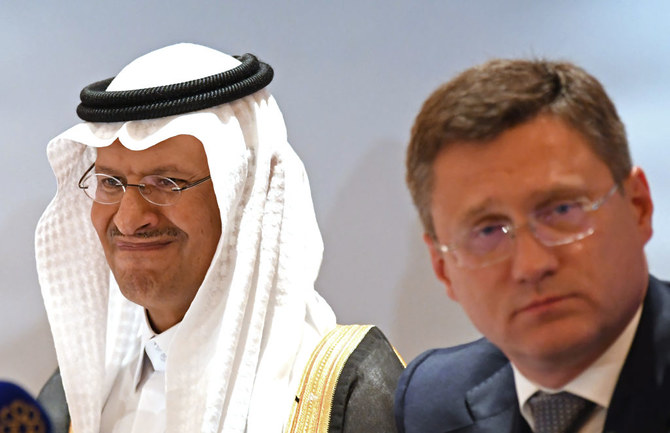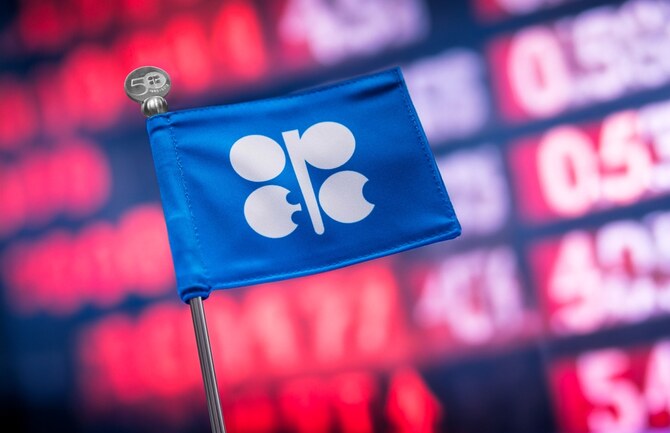Ziad Sabbah, Fahad Abou AlJadayel & Shatha AlMasoudi
CAIRO/RIYADH: The members of the Organization of the Petroleum Exporting Countries and their allies, otherwise known as OPEC+, decided today to continue same output hike plan thus defying calls from US to ramp up production levels by up to double of what they additionally pump to the market monthly.
Russian deputy minister Alexander Novak told a press conference that this decision is in line with the OPEC+ agreement to put out 400,000 barrels a day a month till the end of 2022.
All OPEC+ ministers today pointed to a surplus in the oil market in early 2022, which makes their decision not to go beyond the agreed amount reasonable to them. The US, however, doesn’t share that view and its administration sees that OPEC+ is withholding deliberately supplies.
Speaking at the same press conference, Saudi energy minister Prince Abdulaziz bin Salman refuted such claims saying that OPEC+ is a responsible oil producing group and a market regulator that is doing a “good job”, while his UAE counterpart, Suhail AlMazrouei, said that the group doesn’t target a specific oil price.
“OPEC+ will secure enough supply to the market on timely basis,” said Mohammad Al-Fares, Kuwait’s Minister of Oil. “All scenarios point to a surplus in the oil market in 2022.”
Several countries — including the US — have called on the alliance to raise its production levels, yet the group seems to be persistent on its plans.
The White House wants OPEC+ to increase its monthly supply ceiling to the range of 600,000-800,000 thousand barrels a day, according to delegates and diplomats cited by Bloomberg.
This is compared to the current 400,000 barrels a day plan.
Brent crude oil price was up by 0.85 percent to $82.69 a barrel as of 11:43 am Riyadh time while US Texas Intermediate crude (WTI) increased to $81.41 per barrel at 11:59 am Riyadh time.
Investors seem to expect that the OPEC+ meeting will not result in increasing output despite a possible rise in oil exports from Tehran following the resumption of the country’s nuclear talks with the US later this month.
This comes at a time when the US president is pressuring oil producers to raise their output levels to avoid mounting inflationary pressures due to soaring energy prices.
This might risk America’s economic agenda, Bloomberg reported. Also, many countries, most notably China, seem to be suffering from power shortages in the current period.
However, there are fears that some countries such as Angola and Nigeria are missing their targets and that the 400,000 goal will not be achieved.
Japan and India have also joined the US in its call for more oil production.
However, oil-exporting countries seem likely to brush off these requests.
Saudi energy minister, Prince Abdulaziz bin Salman, said that the alliance doesn’t expect shortages in crude oil in the market. In addition, Kuwait and Iraq announced recently that they remain supportive of plans to raise oil by 400,000 barrels per day.






















